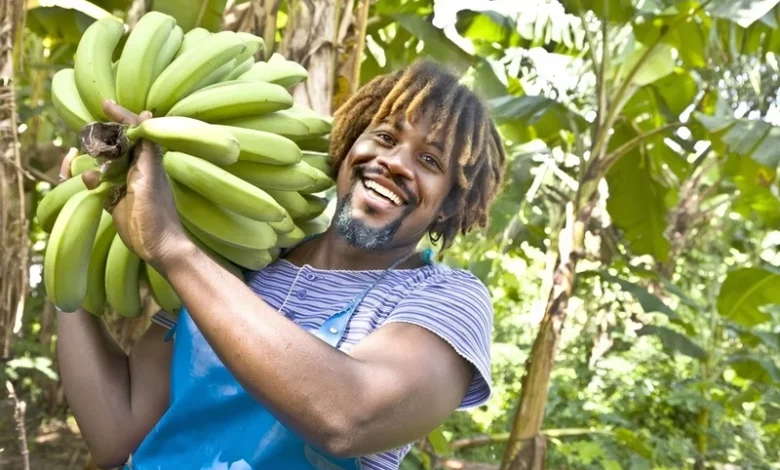Fair Trade Banana Program in Dominica

The Fair Trade Banana Program has played an instrumental role in shaping the banana industry, which has long been a cornerstone of Dominica’s Economy. Established in response to declining global banana prices and the erosion of trade preferences in European markets, the program sought to ensure fair compensation for farmers while promoting sustainable agricultural practices. It continues to empower banana growers, fostering economic resilience and enhancing rural livelihoods.
The Role of the Dominica Banana Marketing Corporation (DBMC)
The Dominica Banana Marketing Corporation (DBMC) has been a key player in implementing the Fair Trade Banana Program. The DBMC works closely with farmers to ensure they meet international fair trade standards, providing essential support in certification, quality control, and export logistics. It also negotiates favourable banana prices, ensuring farmers earn equitable compensation for their produce. By creating a structured network, the DBMC strengthens farmers’ access to international markets and reduces the volatility they face from market fluctuations.
Sustainability and Environmental Conservation
Central to the program’s success is its focus on sustainability. Farmers are encouraged to adopt environmentally friendly practices such as the use of organic fertilizers, water conservation techniques, and integrated pest management. These measures not only enhance the quality of bananas but also preserve the island’s biodiversity, ensuring that agricultural activities coexist harmoniously with the natural environment. This aligns with the government’s broader initiatives to promote environmental sustainability, as highlighted in policies linked to the Economy.
Impact and Challenges
The Fair Trade Banana Program had mixed impacts on Dominica. While it aimed to provide better prices and promote sustainable farming practices, its benefits were limited by several challenges specific to The Dominica Banana Industry and The Dominica Economy.
Limited Benefits to Farmers
- Price Competition: Despite the promise of fair pricing, Dominica’s small-scale farmers struggled to compete with large-scale banana producers in Central and South America. The latter had economies of scale and lower production costs, making their bananas more competitive in international markets.
- Market Access: The erosion of preferential trade agreements with the European Union, particularly through the World Trade Organization (WTO) rulings, diminished Dominica’s market advantage. The Fair Trade Banana Program could not fully offset the losses from reduced export opportunities.
- Certification Costs: While fair trade certification aimed to bring higher returns, the process was costly and burdensome for smallholder farmers. Many struggled to meet stringent requirements, leading to limited participation.
Positive Contributions
- Community Development: The Fair Trade Banana Program has revitalized rural communities such as Marigot, Castle Bruce, and Calibishie by funding critical infrastructure projects, such as schools, health clinics, and water systems, in rural farming areas. These investments brought some social benefits, even if their economic impact on individual farmers was less than modest.
- Environmental Awareness: The program promoted sustainable farming practices, helping to preserve Dominica’s biodiversity. This aligned with national conservation efforts and boosted the island’s eco-tourism image.
- Global Advocacy: Fair trade programs drew international attention to the plight of Caribbean farmers, including those in Dominica. This advocacy emphasized the need for equitable trade policies and provided a platform for Dominica’s voice in global forums.
Challenges and Missed Opportunities
Despite these benefits, the program did not significantly alter the trajectory of Dominica’s banana industry:
- Climate Vulnerability: Hurricanes and storms frequently devastated banana crops, undermining efforts to stabilize production.
- Diversification Gap: Farmers were slow to diversify into other crops, leaving them heavily reliant on bananas despite declining profitability.
- High Costs: The cost of maintaining fair trade certification and the logistical challenges of exporting bananas from a small island increased overheads.




